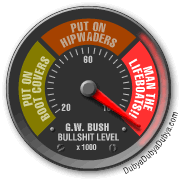Have I got pickles.....
The History of Pickles
The history of pickles stretches so far back into antiquity that no definite time has been established for their origin, but they are estimated to be over 4,000 years old.
In 2,030 BC, cucumbers native to India were brought to the Tigris Valley. There, they were first preserved and eaten as pickles.
Cucumbers are mentioned at least twice in the Bible (Numbers 11:5 and Isaiah 1:8) and history records their usage over 3,000 years ago in Western Asia, ancient Egypt and Greece.
In 850 B.C., Aristotle praised the healing effects of cured cucumbers.
Cleopatra attributed a portion of her beauty to pickles -- though we're not sure which portion.
Pliny's writings mention spiced and preserved cucumbers; in other words, pickles.
The Roman Emperor Tiberius consumed pickles on a daily basis.
Julius Caesar thought pickles had an invigorating effect, so, naturally, he shared them with his legions.
The enjoyment of pickles spread far and wide through Europe. In the thirteenth century, pickles were served as a main dish at the famous Feast of King John.
Pickles were brought to the New World by Christopher Columbus, who is known to have grown them on the island of Haiti.
In the sixteenth century, Dutch fine food fanciers cultivated pickles as one of their prized delicacies.
Cartier found cucumbers growing in Canada in 1535, and they were known to the colonists of Virginia as early as 1609.
Queen Elizabeth liked pickles. And Napoleon valued pickles as a health asset for his armies.
Samuel Pepy's diary mentions a glass of Girkins as something to be highly appreciated.
In 1659, Dutch farmers in New York grew cucumbers in what is now Brooklyn. These cukes were sold to dealers who cured them in barrels and sold them from market stalls on Washington, Canal and Fulton Streets. As it turns out, these pickle purveyors started the nation's commercial pickle industry.
A fondness for pickles has always been a national characteristic of the American people (as well as Polish people and Polish Americans). It's a good thing, since our country's namesake, Amerigo Vespucci, was actually a pickle peddler in Seville, Spain. He supplied ships with pickled vegetables to prevent sailors from getting scurvy on long voyages. While Columbus is credited with discovering America, Vespucci was apparently a better PR man. We're named for him. We became the United States of America -- instead of the United States of Vespucci. And that's probably a good thing, too.
George Washington was a pickle enthusiast. So were John Adams and Dolly Madison.
Pickles inspired Thomas Jefferson to write the following:
"On a hot day in Virginia, I know nothing more comforting than a fine spiced pickle, brought up trout-like from the sparkling depths of the aromatic jar below the stairs of Aunt Sally's cellar."
We're still trying to track down Aunt Sally's recipe.
In colonial America, the pickle patch was an important adjunct to good living. Pickles were highly regarded by all of America's pioneering generations because, under frontier conditions, pickles were the only zesty, juicy, green, succulent food available for many months of the year.
In colonial times, and, much later, on farms and in villages, homemakers expected to "put down" some pickles in stone crocks, and to "put up" some pickles and pickle relishes in glass jars.
In 1820, Frenchman Nicholas Appert was the first person to commercially pack pickles in jars.
1926, however, stands as perhaps the most momentous date in pickle history. You see, in that year, the Mt. Olive Pickle Company was founded.
Damn, even I learned something!!!
I thought it was just good to be Polish & love your pickles!!!













4 Comments:
Can we please have a post about Joan Shawlee? It would help cure my jones for more pickles.
I think you just pickled my brain.
Okay, a clue about Joan Shawlee . . . she portrayed Morey Amsterdam's wife on the old "Dick Van Dyke Show".
There ya go Robert!!! Never say the lady doesn't try to please.
Post a Comment
<< Home